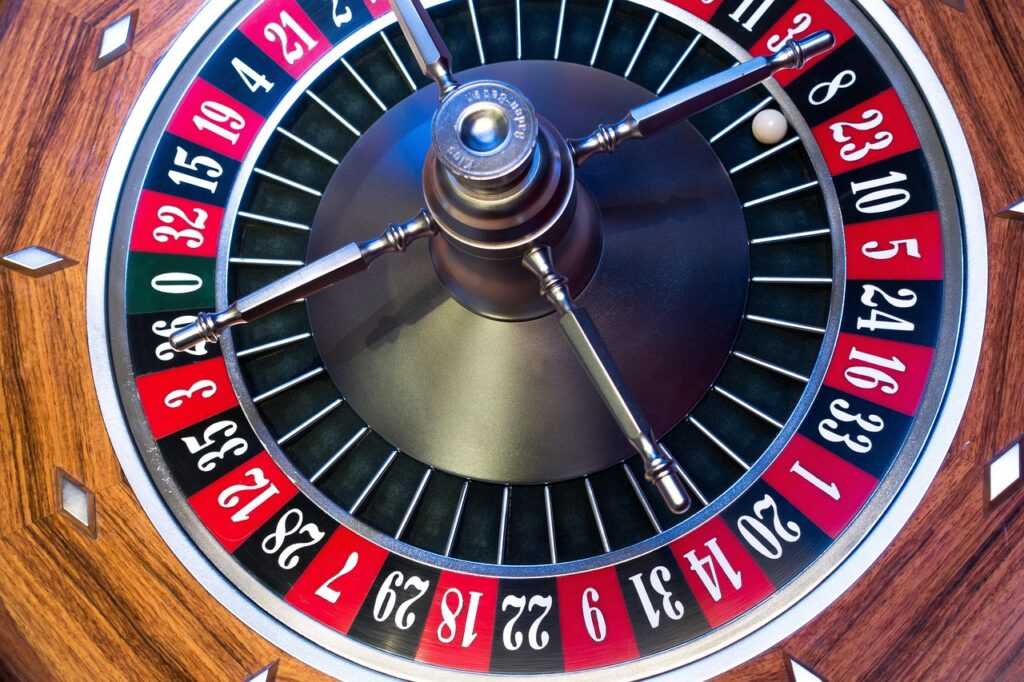Understanding the Psychology of Gambling
The psychology of gambling can significantly influence a gambler’s behavior and decision-making. Recognizing key psychological factors helps in maintaining rationality during gambling activities.
The Role of Dopamine
Dopamine, a neurotransmitter in the brain, plays a crucial role in the pleasure and reward system. When a person gambles, dopamine levels rise, creating sensations of joy and excitement. This surge can make wins feel euphoric and even losses seem more bearable. According to a study published in the journal “Behavioral Neuroscience,” increased dopamine activity can enhance risky behavior, potentially leading to compulsive gambling. Understanding this can help in recognizing when excitement is driving decisions rather than rational thinking.
The Illusion of Control
The illusion of control is a psychological phenomenon where individuals believe they can influence outcomes in situations governed by chance. This belief can distort rational judgment and lead to overconfidence. For example, gamblers might think their actions, like pressing a button at a certain time, affect the results in slot machines. A paper published in the “Journal of Gambling Studies” found that frequent gamblers often overestimate their degree of control, impacting their betting behavior. Being aware of this illusion can assist in making more informed and logical decisions while gambling.
Key Strategies for Staying Rational
Staying rational while gambling involves implementing specific strategies to maintain control and make logical decisions. These strategies help avoid impulsive behavior and enhance the overall gambling experience.
Setting Limits
Establishing limits is crucial for maintaining rationality. Set financial limits to control spending and time limits to prevent extended gambling sessions. For instance, determine a budget for each gambling session and adhere to it strictly. Also, decide beforehand on a time frame to gamble and stick to it. This reduces the risk of chasing losses and overextending financially or emotionally.
Recognizing Cognitive Biases
Identifying and understanding cognitive biases can aid in making rational decisions. Common biases include the gambler’s fallacy, where one believes past events affect future outcomes, and the illusion of control, where one overestimates their ability to influence results. Acknowledge these biases to mitigate their effects. For example, remind yourself that each game outcome is independent and that skill has limited influence in games of chance.
The Importance of Taking Breaks
Regular breaks can help maintain clarity and prevent emotional burnout. Schedule short breaks between gambling sessions to reflect on your decisions and regain a balanced perspective. These pauses serve as an opportunity to assess your emotional state and reconsider your approach, ensuring that decisions remain rational and controlled.
Managing Emotions While Gambling

Staying rational when gambling involves effectively managing emotions. Understanding one’s emotional responses to wins and losses helps maintain control and prevent impulsivity.
Handling Wins and Losses
Gambling can elicit strong emotions, both with wins and losses. Celebrate wins but avoid overexcitement to prevent risky bets. After a loss, take a moment to reflect rather than immediately trying to recover the lost amount. Recognize that both winning and losing streaks are part of the gambling experience. For instance, if losing consecutively, remind yourself that the outcome of each game is independent of previous results. This approach maintains emotional equilibrium, essential for rational decision-making.
Avoiding Emotional Decision-Making
Emotional reactions often lead to poor decisions when gambling. Implement strategies to mitigate emotional influences. Set predefined limits on money and time spent gambling to keep emotions in check. Use tools like self-exclusion and cooldown periods to create distance and gain perspective. Recognize common cognitive biases like the gambler’s fallacy, where the expectation of future wins is based on previous losses. By consciously acknowledging these biases, base decisions on logic rather than emotions, cultivating a rational gambling mindset.
The Role of Responsible Gambling Tools
Responsible gambling tools help manage behaviors and maintain control during gambling activities.
Self-Exclusion Programs
Self-exclusion programs enable gamblers to voluntarily exclude themselves from gambling venues or online sites for specified periods. These programs are essential for those struggling to control their gambling habits, providing a structured way to take a break and avoid impulsive decisions. For example, self-exclusion can last from six months to five years, depending on individual needs. Many gambling platforms offer options to exclude from all their services, ensuring comprehensive support.
Utilizing Budget Trackers
Budget trackers assist gamblers in managing their finances effectively. By setting up a budget tracker, one can monitor gambling expenditure, ensuring it doesn’t exceed pre-set limits. These tools are handy for users who want to maintain financial control while gambling. Examples include apps and software that can categorize spending, set alerts for exceeding limits, and provide detailed expense reports. Regularly reviewing these reports helps keep spending in check and supports rational decision-making.
Real-Life Stories and Case Studies
Analyzing real-life stories and case studies of gamblers can offer valuable insights into the effectiveness of different strategies. Positive and negative experiences can help identify successful techniques, as well as common pitfalls.
Successful Strategies
Several gamblers have successfully maintained their rationality by employing key strategies. For instance:
- Setting Limits: A professional poker player shared that pre-setting strict financial and time limits enabled sustained rational decision-making. They used budget trackers to monitor expenses and avoided exceeding their limits, which helped them maintain control.
- Self-Exclusion: An avid online gambler described how they used self-exclusion to take necessary breaks. This method facilitated emotional regulation, allowing them to return to gambling with a clear, focused mind.
- Mindfulness Practices: Another case study highlighted a casual gambler who adopted mindfulness techniques. By practicing meditation and staying present, they managed impulses and maintained a balanced emotional state during games.
Pitfalls to Avoid
Learning from common mistakes can prevent irrational behaviors in gambling. Here are notable pitfalls:
- Chasing Losses: A case study revealed a gambler who consistently chased losses, leading to significant financial and emotional distress. Recognizing when to stop and not letting losses dictate further play could have mitigated these adverse outcomes.
- Overconfidence: An exciting win led one gambler to believe in their infallibility, causing them to make reckless bets in subsequent games. This overconfidence, fueled by the illusion of control, eventually resulted in heavy losses.
- Ignoring Emotional Triggers: An individual ignored their emotional triggers, resulting in impulsive and irrational decisions. By failing to recognize how wins and losses impacted their emotions, they jeopardized rational decision-making.
These real-life stories underscore the importance of learning from both success and failure, offering practical lessons for anyone looking to stay rational while gambling.



 Elizabeth Kaylor – Author
Elizabeth Kaylor is an experienced author and contributor at Smart Gamble Land. Specializing in casino game mastery and player psychology, Elizabeth provides readers with in-depth tips on how to approach popular casino games with confidence and precision. Her expertise in understanding player behavior, game dynamics, and strategy allows her to craft engaging content that appeals to both novice and experienced gamblers alike. Elizabeth's insightful articles offer readers the tools they need to thrive in high-stakes environments.
Elizabeth Kaylor – Author
Elizabeth Kaylor is an experienced author and contributor at Smart Gamble Land. Specializing in casino game mastery and player psychology, Elizabeth provides readers with in-depth tips on how to approach popular casino games with confidence and precision. Her expertise in understanding player behavior, game dynamics, and strategy allows her to craft engaging content that appeals to both novice and experienced gamblers alike. Elizabeth's insightful articles offer readers the tools they need to thrive in high-stakes environments.
